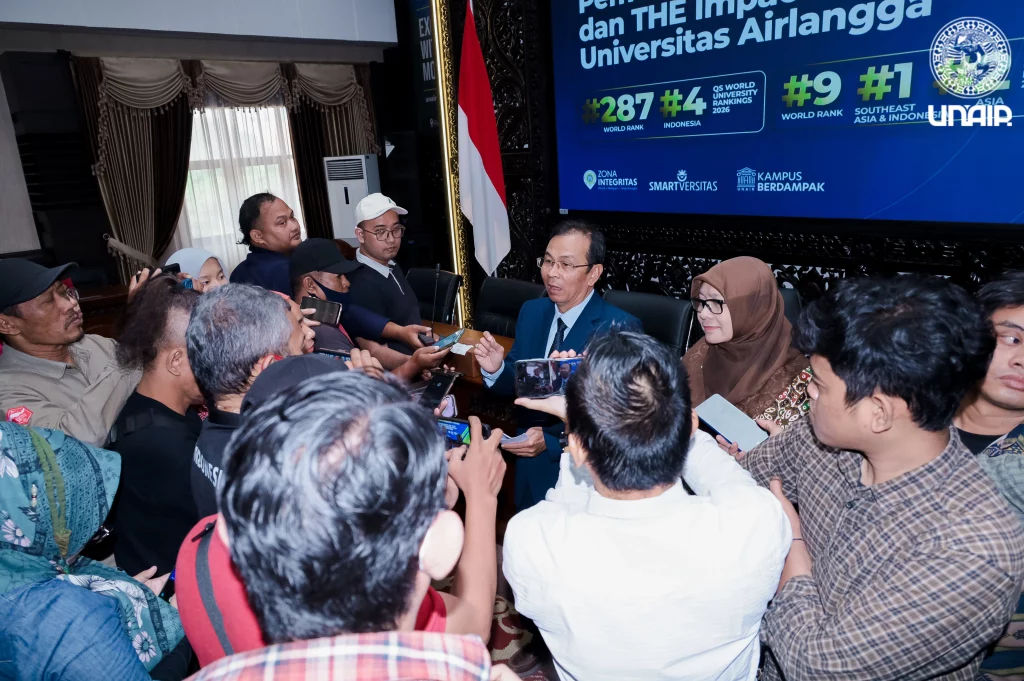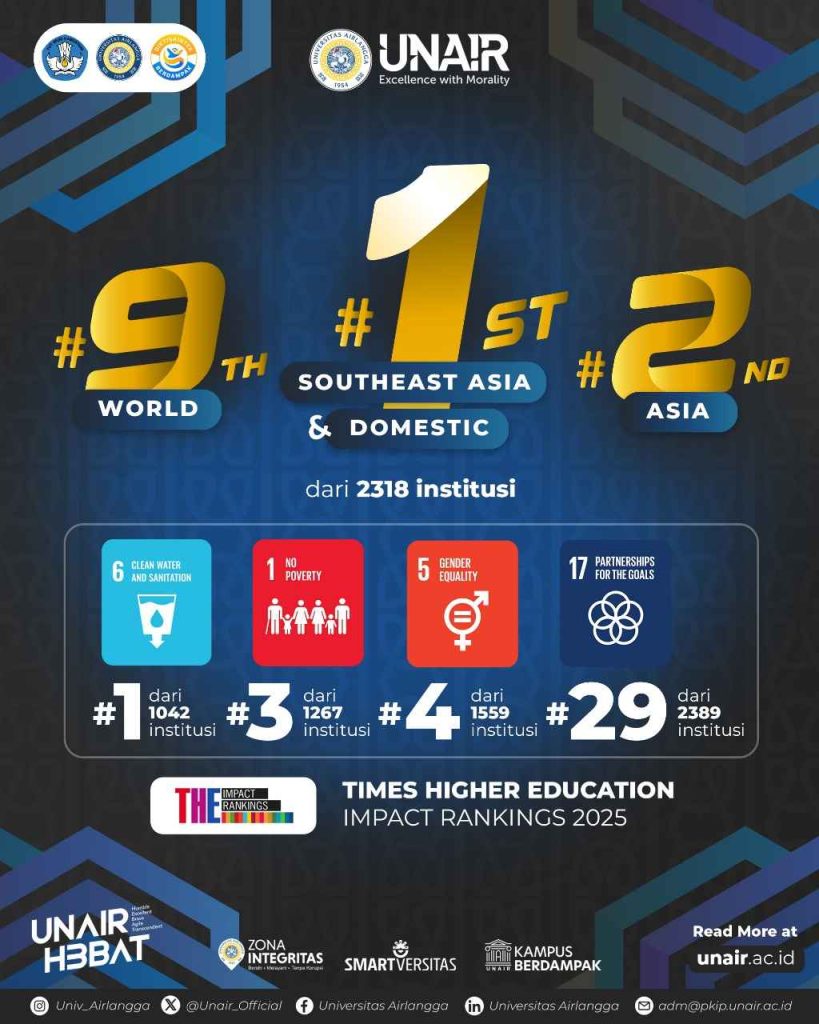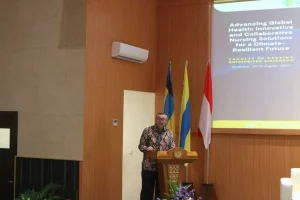UNAIR NEWS – Universitas Airlangga (UNAIR) has once again earned global recognition through a remarkable achievement in the 2025 Times Higher Education (THE) Impact Rankings. UNAIR secured 9th place globally, making it the top university in both Southeast Asia and Indonesia. Rector Prof. Dr. Muhammad Madyan, SE, M.Si., M.Fin. stated that the accomplishment reflects UNAIR’s deep commitment to addressing global social, environmental, and economic challenges.
Prof. Madyan noted that UNAIR excelled in several key areas of the United Nations Sustainable Development Goals (SDGs). The university ranked first in the world for SDG 6: Clean Water and Sanitation, and third globally for SDG 1: No Poverty. “This achievement is clear evidence of UNAIR’s contributions to community service, economic empowerment at the local level, and inclusive access to education,” he explained during a press conference held on Thursday, June 19, 2025.
UNAIR also achieved a fourth-place global ranking for SDG 5: Gender Equality. This reflects the university’s active support for women’s empowerment and gender equity. Additionally, in SDG 17: Partnerships for the Goals, UNAIR placed 29th globally, highlighting its growing role in fostering international collaboration to advance sustainable development.
Guided by pillars of transformation
Prof. Madyan emphasized that UNAIR’s success is built upon key pillars of institutional transformation. The first is a strong commitment to sustainability and moral responsibility. “The entire UNAIR academic community is grounded in the principle of excellence with morality, where academic excellence is aligned with social responsibility and advocacy for the wider community,” he said.

The second pillar focuses on enhancing research quality and international publication output. UNAIR continues to support global research collaboration and active engagement in international academic discourse. The third pillar is maintaining curriculum relevance and competitiveness, while ensuring that education remains inclusive and equitable. “UNAIR is committed to guaranteeing access to learning and career opportunities for all groups, including women, people with disabilities, and economically disadvantaged communities,” Prof. Madyan added.
The fourth pillar focuses on tangible actions in community service and empowerment. These efforts are realized through sustainable programs grounded in research and innovation. Another key pillar is strengthening data-driven governance through UNAIR’s integrated data system. Furthermore, Prof. Madyan emphasized that rankings are merely a reflection—not the ultimate goal.
“Rankings are not the objective—they are a reflection of strong, consistent, and sustainable internal processes. Our true strength lies in our contribution to knowledge, humanity, and global civilization,” he affirmed.
Author: Khumairok Nurisofwatin
Editor: Yulia Rohmawati









